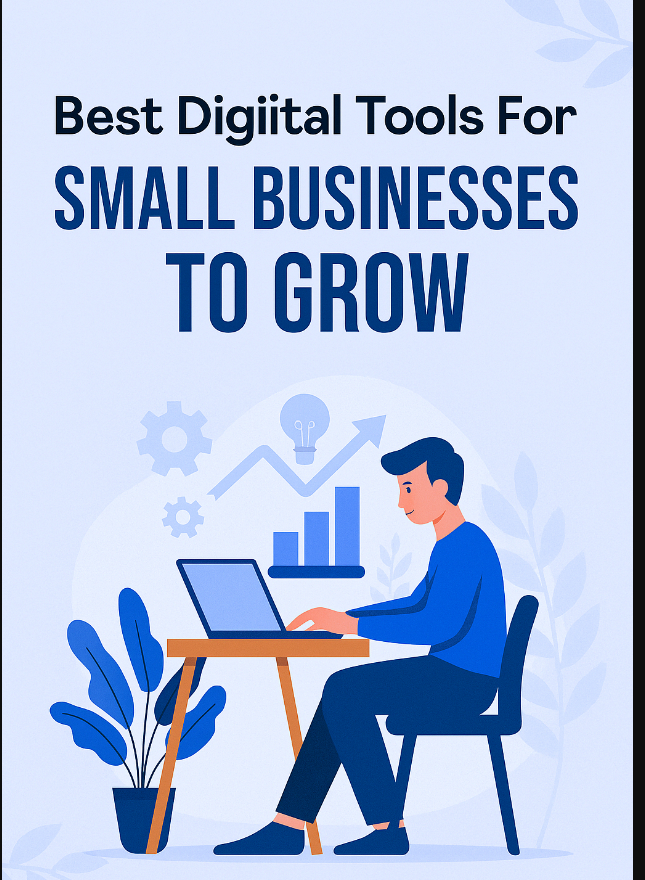The ever-changing and Best Digital Tools For Small Businesses to Grow today dictates that even the smallest enterprises find the right digital instruments to keep growing and expanding sustainably.
Tech is pivotal in the smooth running and automation of operations ranging from finances and project management to customer engagement and online marketing. Utililzing the right platforms in an organization is a time saving strategy that translates to enhanced productivity, collaboration and brand visibility.
Consequently, this article seeks to provide the Best Digital Tools For Small Businesses to Grow and scale sustainably.
Key Point
| Digital Tool | Purpose / Benefit |
|---|---|
| Slack | Facilitates seamless team communication and collaboration, keeping all business conversations organized and reducing email overload. |
| Trello | A visual project management tool to track tasks, deadlines, and workflows, improving productivity and team coordination. |
| Canva | Simplifies graphic design for social media, marketing, and branding materials without needing professional design skills. |
| QuickBooks | Manages accounting, invoicing, and expenses efficiently, helping small businesses maintain financial health and simplify tax filing. |
| HubSpot CRM | Centralizes customer data, automates marketing and sales processes, and improves lead management and customer relationships. |
| Mailchimp | An email marketing platform to create campaigns, track engagement, and nurture leads effectively at a low cost. |
| Google Workspace | Provides cloud-based tools like Gmail, Docs, Sheets, and Drive for collaboration, storage, and communication. |
| Hootsuite | Allows businesses to schedule, manage, and monitor social media posts across multiple platforms efficiently. |
| Shopify | Enables small businesses to create and manage online stores, process payments, and track orders easily. |
| Zoom | Supports virtual meetings, webinars, and client calls, allowing businesses to maintain communication and collaboration remotely. |
1. Slack – Team Communication
A business with a strong foundation is the result of having good communication skills. Slack offers a single dashboard for relaying messages to multiple employees where they can provide feedback in minutes. Slack allows productivity apps to be incorporated into their dashboard so that management of employee productivity can be done easily.
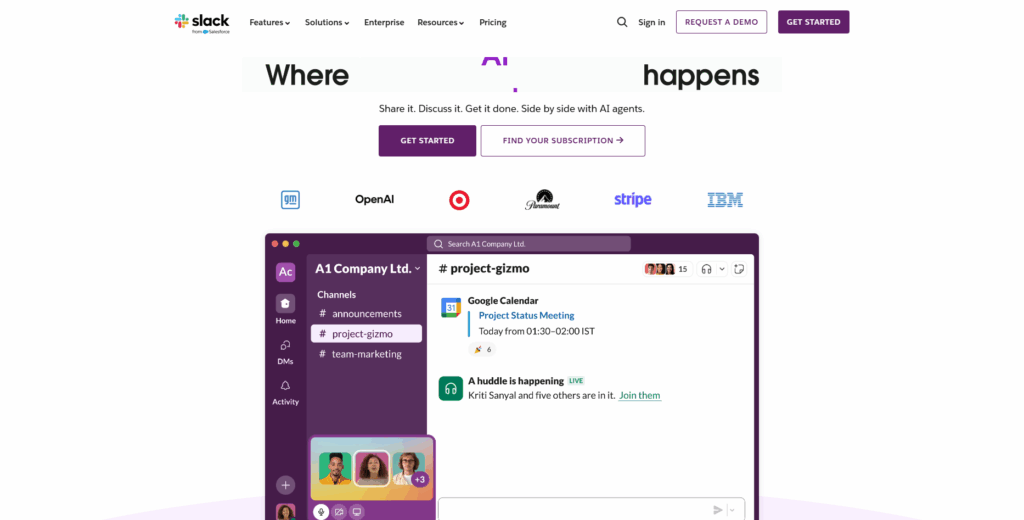
Because of the silo structure of Slack, communications are kept in silos and email is no longer a necessity. At this point, it is pretty obvious that Slack is the best small scale communication tool and itd”s integration and instant messaging Slack is great for remote and hybrid teams.
Slack – Team Communication
Pros
- Allows for instant messaging and file transfers
- Channels can be organized by teams and projects
- Tool integrations with Trello, Google Drive, and Zoom
- Helps eliminate the use of email chains
Cons
- Presence of many notifications can be distracting
- Continuous internet connectivity required
- Limited message retention on the free plan
2. Trello – Project Management
For small scale businesses that are resource strapped and under tight profit margins, efficient project management is key. To do this, Use Trello it allows for a visual board and card system that system that can be used to customize tasks and track collaboration with the entire team.
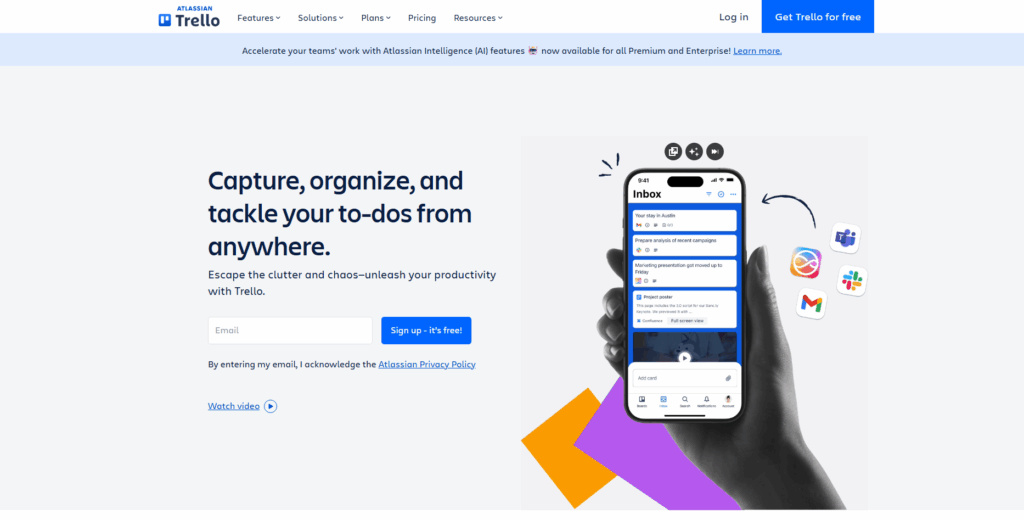
In this paragraph, it can be easily noted that Trello is the best digital tool in this small business. Focuses on project management, marketing campaign, product launch to be managing.
Being able to scale this operationally is augmented by platform integrations with Slack, Google Workspace, and others to improve workplace collaboration.
Trello – Project Management
Pros
- Offers an easy and organized visual system of boards and cards
- Simple to assign tasks and track deadlines
- Tool integrations with Slack, Google Workspaces, etc.
- Highly suitable for small teams and startups
Cons
- More advanced features are behind a paywall
- Could be better for simpler project management
- Can be messy with an excess of boards and cards
3. Canva – Design & Branding
For small businesses, standing out in the marketplace is key to tapping unique competitive advantages, and the ability to build and maintain a strong brand is crucial. Canva is a drag-and-drop graphic design tool that provides users with design templates and stock graphics to help non-designers make professional graphics.
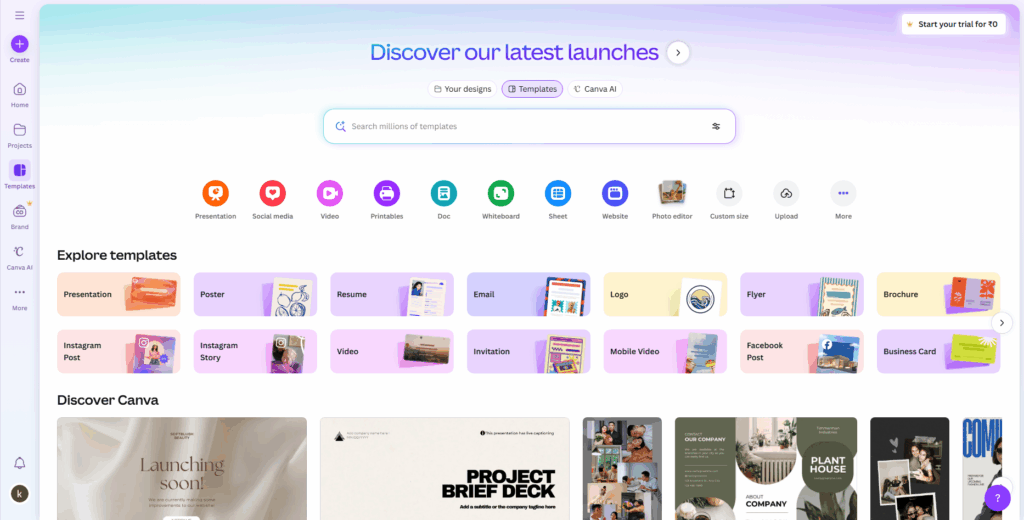
No other digital tool compares to Canva in the ease with which logos and other branding items like social media graphics and presentations and marketing pieces can be made by users with very little design skill.
For small businesses, the ability to use this digital platform at a very low cost to maintain strong brand identity across platforms is a game changer for strong customer engagement and brand trust.
Canva – Design & Branding
Pros
- Accessible to anyone with an easy to use design and drag interface
- Offers a great number of templates for social media posts, presentations, logos, etc.
- More cost effective compared to hiring design professionals or purchasing professional design software
- Accessible on the cloud
Cons
- Less design freedom than tools like Adobe
- More advanced features are behind a paywall
- Can be limiting for high level design projects
4. QuickBooks – Accounting & Finance
For many smaller businesses, financial management can be a burden. Issues such as the bookkeeping, invoicing, payroll, tax preparation, and the risks of non-compliance and inaccuracy risks can be overwhelming to business owners.
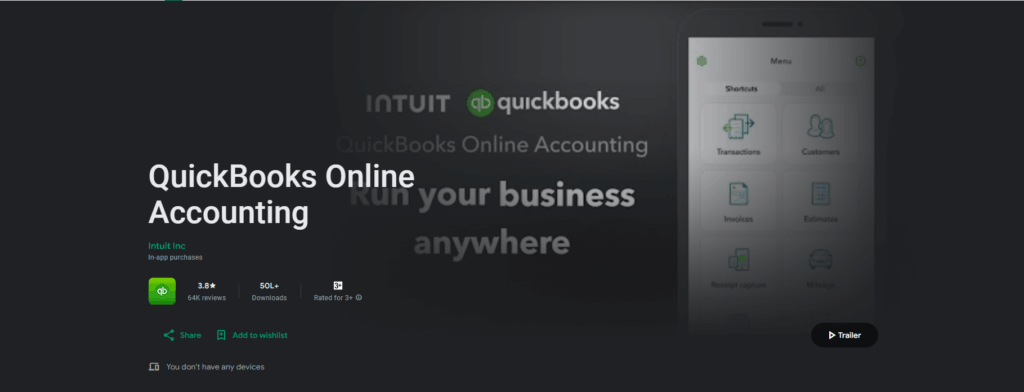
However, QuickBooks streamlines these financial management tasks so users can feel confident in their compliance and reporting. The automated financial management tool provides users with real-time dashboards that give insights into profit margins and cash control.
Time saving automations and integrations are key to faster and safer transfers. For many small businesses, financial control becomes more manageable and the decision making improves.
QuickBooks – Accounting & Finance
Pros
- Automates bookkeeping, invoicing, payroll, and taxes
- Financial dashboards
- Bank and payment systems integration
- Grows with the business
Cons
- Small businesses might find it pricey
- Advanced features have a learning curve
- Some banks/data may experience syncing issues
5. HubSpot CRM – Customer Relationship Management
For many businesses, customer relationships are the key to building a strong customer base. With a straightforward interface, HubSpot CRM allows users to track leads, manage pipelines, and automate sales functions at no cost.
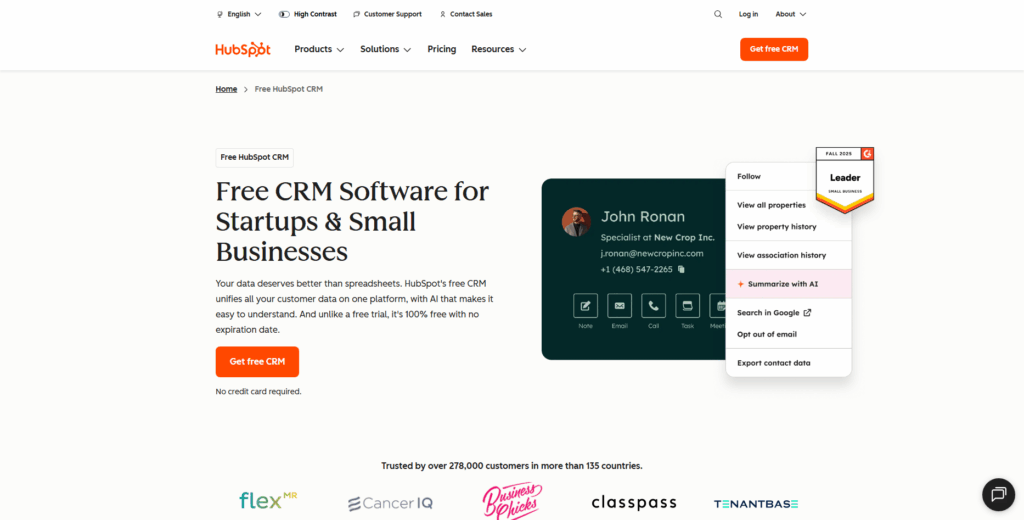
It’s no surprise that halfway through listing HubSpot CRM’s benefits, the author claims, “HubSpot CRM is the best digital tool for small businesses to manage customer relationships,” thanks to email tracking, deal forecasting, and marketing automation.
Because it’s scalable, businesses can grow into HubSpot’s other marketing, sales, and service tools.
HubSpot CRM – Customer Relationship Management
Pros
- Robust features for a free offering
- Tracks leads and interactions with customers
- Integrates with email and marketing/sales tools
- Grows with the business
Cons
- Some advanced features cost extra
- Overwhelming for newbies
- Less customizable than other enterprise CRMs
6. Mailchimp – Email Marketing
For small businesses, email marketing is still one of the most potent forms of marketing communication. Automation, analytics, and custom templates for a campaign are all available through Mailchimp.
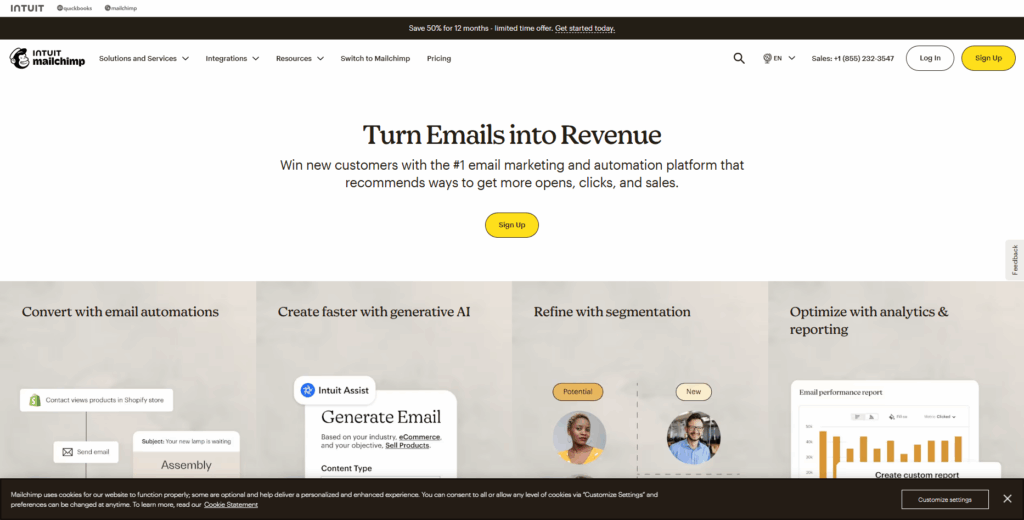
Targeting an audience and A/B testing are tools Mailchimp offers for growing an audience that are ideal for small businesses. As it’s inexpensive and easy to use, it’s an ideal tool for startups and small to medium enterprises to get the most out of email marketing.
Mailchimp – Email Marketing
Pros
- Build email campaigns easily
- Can automate and segment audience
- Includes analysis and A/B testing
- Priced well for small businesses
Cons
- Free plan is limited
- Pricing for larger lists skyrockets
- Design options are more limited than ideal
7. Google Workspace – Productivity Suite
Today’s firms need both collaboration and productivity solutions. Google Workspace (formerly G Suite) includes Gmail, Docs, Sheets, Drive, and Meet, which are all combined into one system.
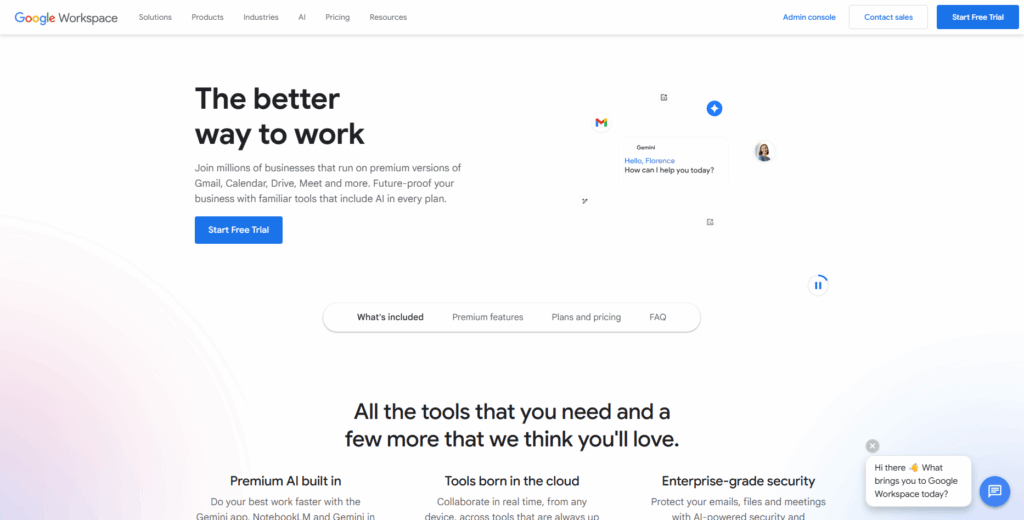
It is evident that Google Workspace is the best digital tool for small businesses to manage their workflow.
This tool enables flexibility to work anytime and with anyone. This is foundational to any organization’s remote and hybrid work strategy.
Google Workspace – Productivity Suite
Pros
- Offers Gmail, Docs, Sheets, Drive, Meet
- Collaboration in real-time
- Secure storage in the cloud
- Monthly subscriptions are affordable
Cons
- Needs good internet
- Can’t do much without the internet
- Office Office Suite, e.g., Word, Powerpoint, Excel, etc., may be less powerful than advanced Office Suite, e.g., Word, Powerpoint, Excel, etc.
8. Hootsuite – Social Media Management
Social media is an essential tool for marketing and growing a small business. Hootsuite is a time-efficient platform to manage social media accounts by scheduling posts, tracking metrics, and analyzing data for posts across many social media platforms.
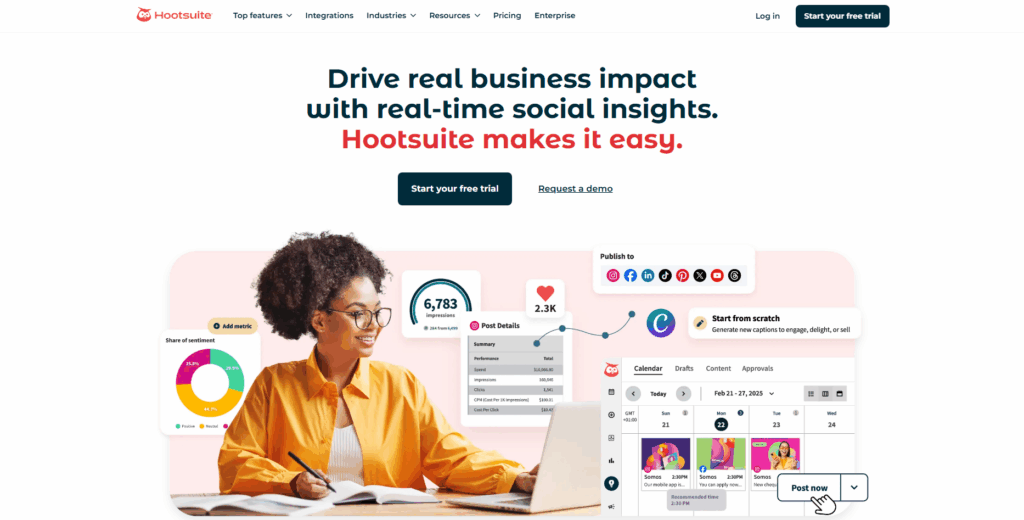
It is clear that Hootsuite is an integral tool for managing a business’s social media accounts consistently. It’s dashboards with analytics provide data to enhance marketing efforts and increase visibility of a brand.
Hootsuite – Social Media Management
Pros
- Post scheduling on multiple social media platforms
- Performance tracking analytics dashboards
- Saves time on social media management
- Teamwork support
Cons
- Expensive paid plans
- Free plan is too limited
- Novices may find the interface overwhelming
9. Shopify – E-Commerce Platform
Shopify is the complete solution for small businesses to sell on the internet. For small businesses starting, or already in e-commerce, it’s clear that digital tool is Shopify. It includes customizable websites, secure payment processors, and inventory management.

The tool also provides marketing integrations with services such as Mailchimp and social platforms like Instagram. The platform is designed to allow businesses to start small and scale worldwide without changing services.
Shopify – E-Commerce Platform
Pros
- Quick online store creation
- Payment processing and inventory management is secure
- Social media marketing integrations
- Adaptable for any sized business
Cons
- Transaction fees on top of monthly subscription
- Customization requires paid apps or knowledge of coding
- Less adaptable than competitors like WooCommerce (e.g., open source)
10. Zoom – Virtual Meetings
For small businesses, it is normal to work and communicate with clients remotely. For that, Zoom provides video conferencing, webinars, and virtual meeting rooms.

In the middle of the paragraph, there is no doubt that Zoom is the most important digital tool for entrepreneurs to communicate with their clients, associates, and teams around the globe.
Its usability and recording functions, as well as its breakout rooms, make it perfect for automated training, sales, and collaboration calls, allowing businesses to be agile and keep in touch.
Zoom – Virtual Meetings
Pros
- Good quality video conferencing and webinars
- No installation necessary and easy to configure
- Has zoom recording, breakout rooms, and screen share
- Good software and device interoperability
Cons
- Free version timeouts meeting after 40 minutes
- No secure connections used in previous versions
- Needs good internet for video conferencing
Conclusion
Utilizing appropriate platforms is pivotal to small empires’ expansion in the contemporary digital arena. Slack, Trello, Canva, Quickbooks, Hubspot CRM, Mailchimp, Google Workspace, Hootsuite, shopify, and Zoom bolster efficiency, structure, and heightened customer engagement. Streamlined operations, enhanced productivity, and broadened scope can be realized by the adoption of such solutions.
Overall, these constitute the top digital solutions for small empires, allowing the effective scaling of such entities and the attainment of sustained, cost-effective, and manageable growth.
FAQ
What are the essential digital tools for small businesses?
Essential digital tools include communication platforms (Slack), project management (Trello), design (Canva), accounting (QuickBooks), CRM (HubSpot), email marketing (Mailchimp), productivity suites (Google Workspace), social media management (Hootsuite), e-commerce (Shopify), and video conferencing (Zoom).
How can these tools help small businesses grow?
These tools improve efficiency, streamline workflows, enhance customer engagement, simplify accounting, and expand online presence, enabling businesses to focus on growth and revenue generation.
Are these tools suitable for startups?
Yes, these tools are ideal for startups as they are cost-effective, scalable, and easy to implement without requiring large teams or technical expertise.
Can these tools integrate with each other?
Many of these tools support integrations, allowing businesses to connect platforms for seamless data flow, automated workflows, and improved productivity.
Are there free versions of these tools?
Most of these tools, like Slack, Trello, Canva, and Mailchimp, offer free plans or trials, allowing small businesses to explore features before committing to paid plans.


